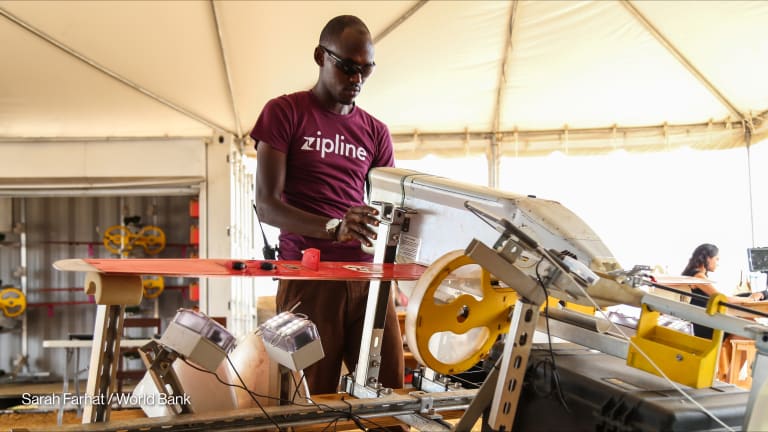Malawi will be home to the first air corridor in Africa to test the application of unmanned aircraft system for humanitarian and development use.
The humanitarian drone testing corridor, announced today by the government of Malawi and UNICEF will become operational by April 2017. It will facilitate testing for projects related to imagery, connectivity and transport.
The launch builds on efforts by UNICEF and other global development organizations to work with governments as well as private sector partners to explore how UAS, also called drones, can drive progress on issues ranging from environmental conservation to health care delivery in low income countries.
Printing articles to share with others is a breach of our terms and conditions and copyright policy. Please use the sharing options on the left side of the article. Devex Pro members may share up to 10 articles per month using the Pro share tool ( ).




